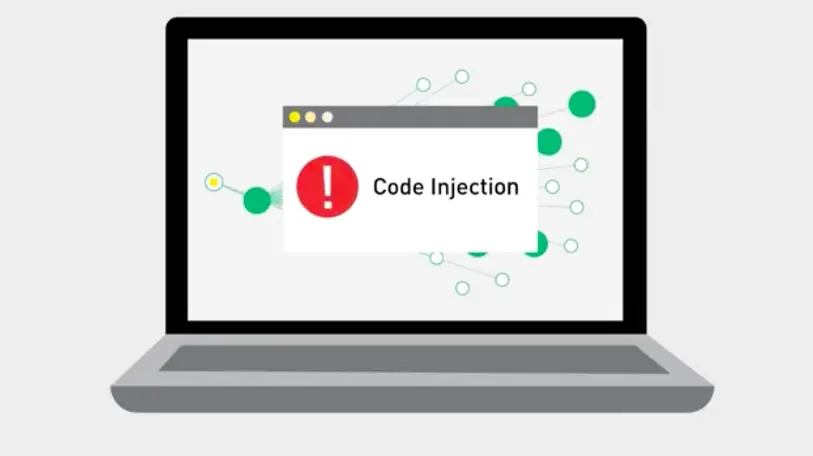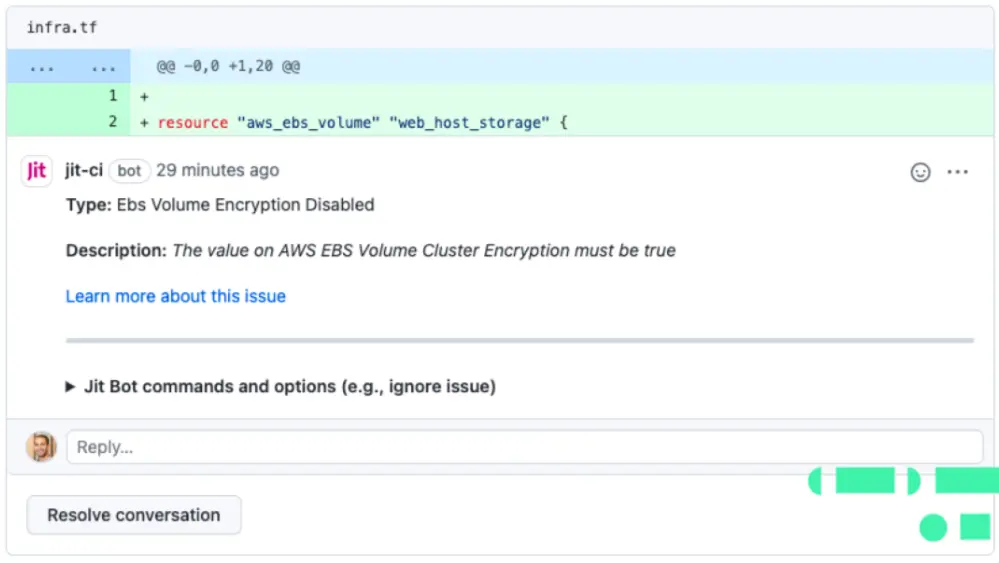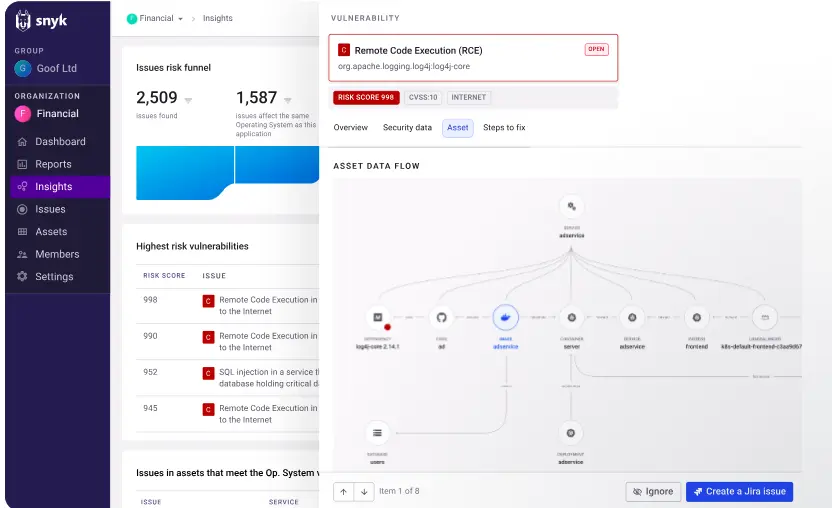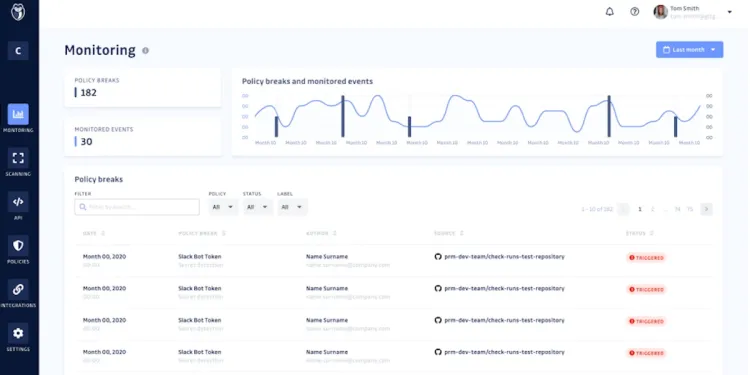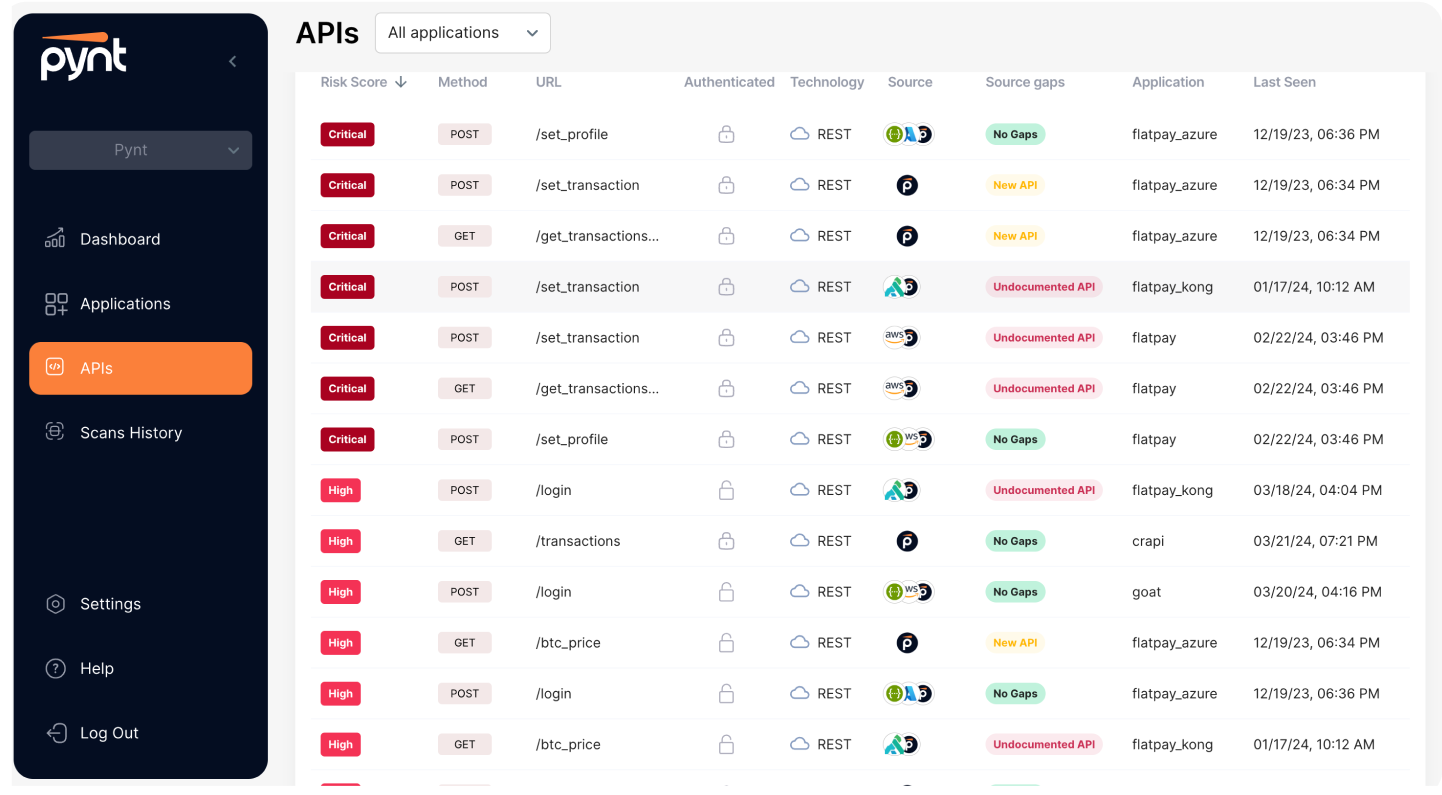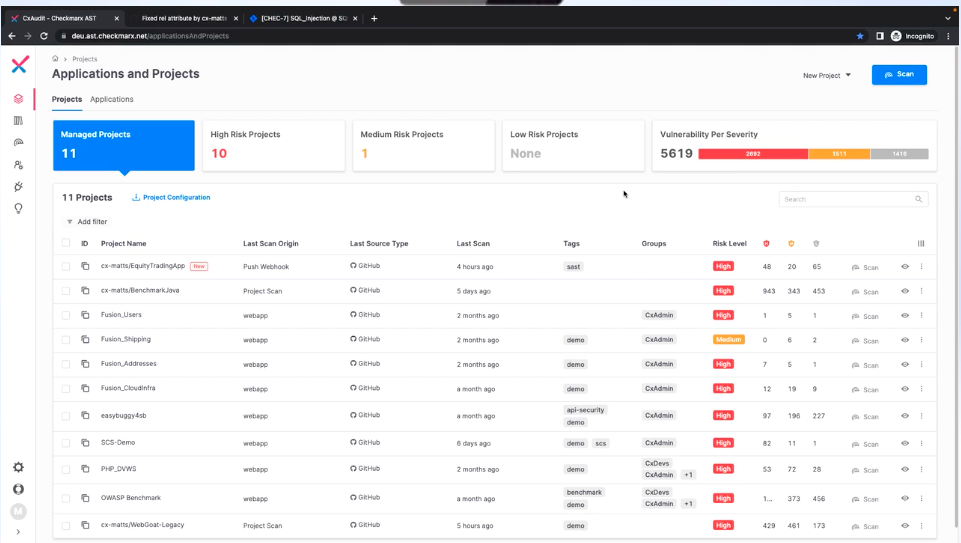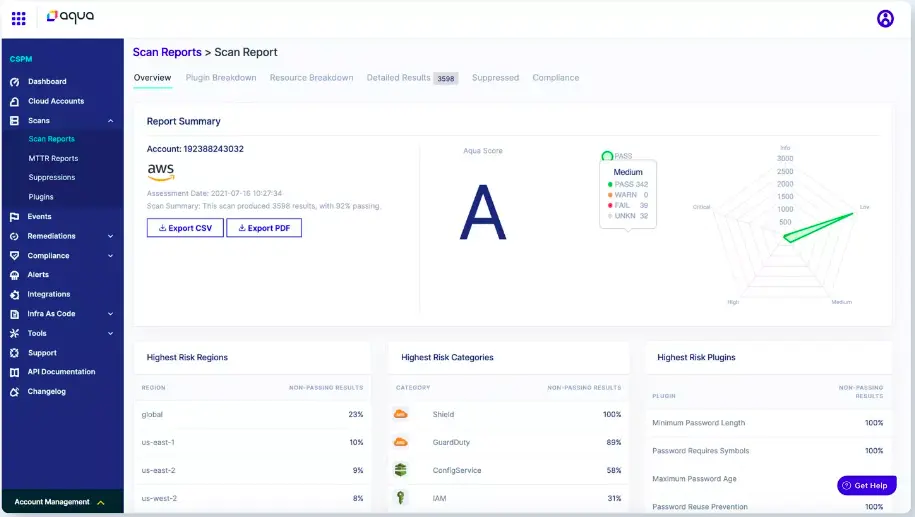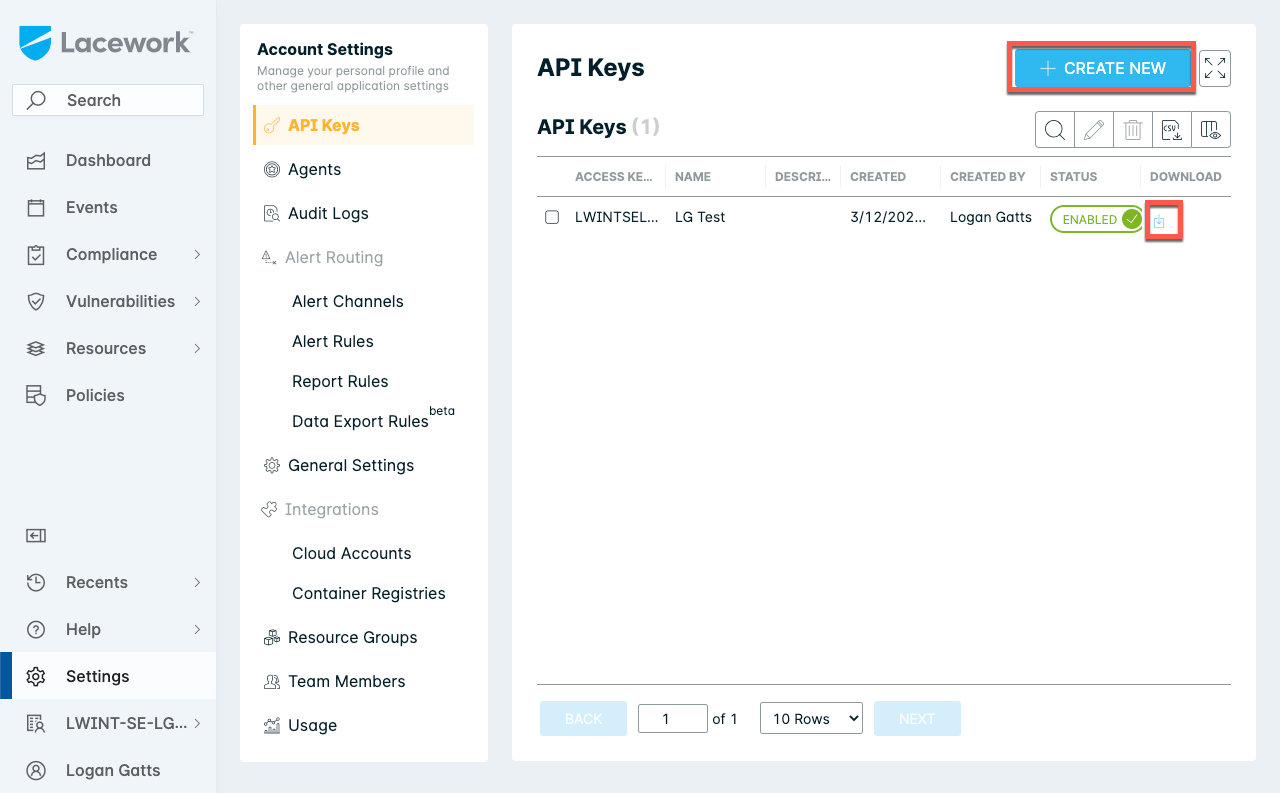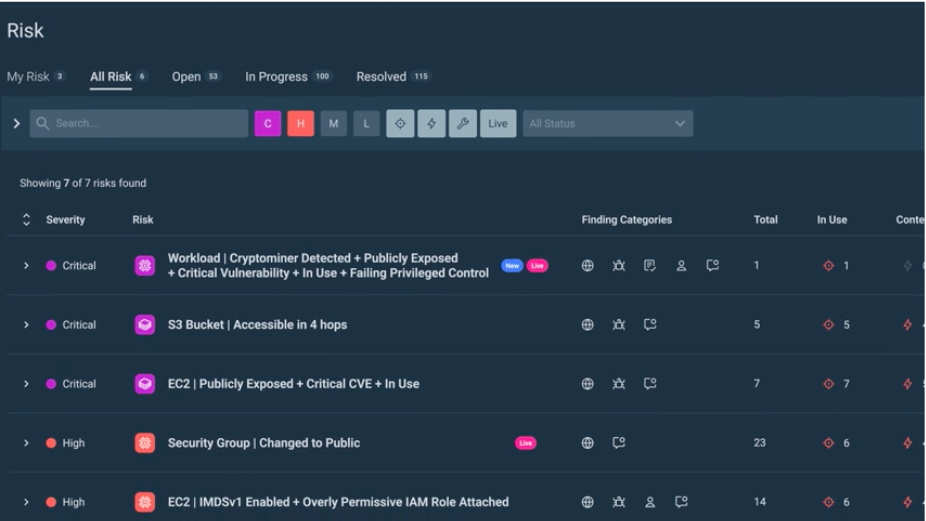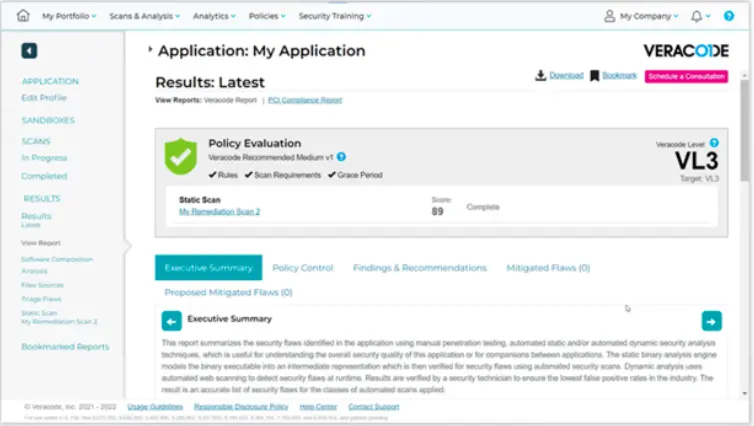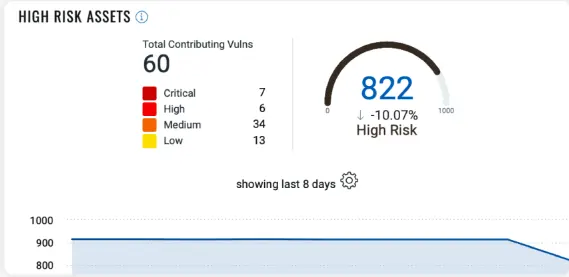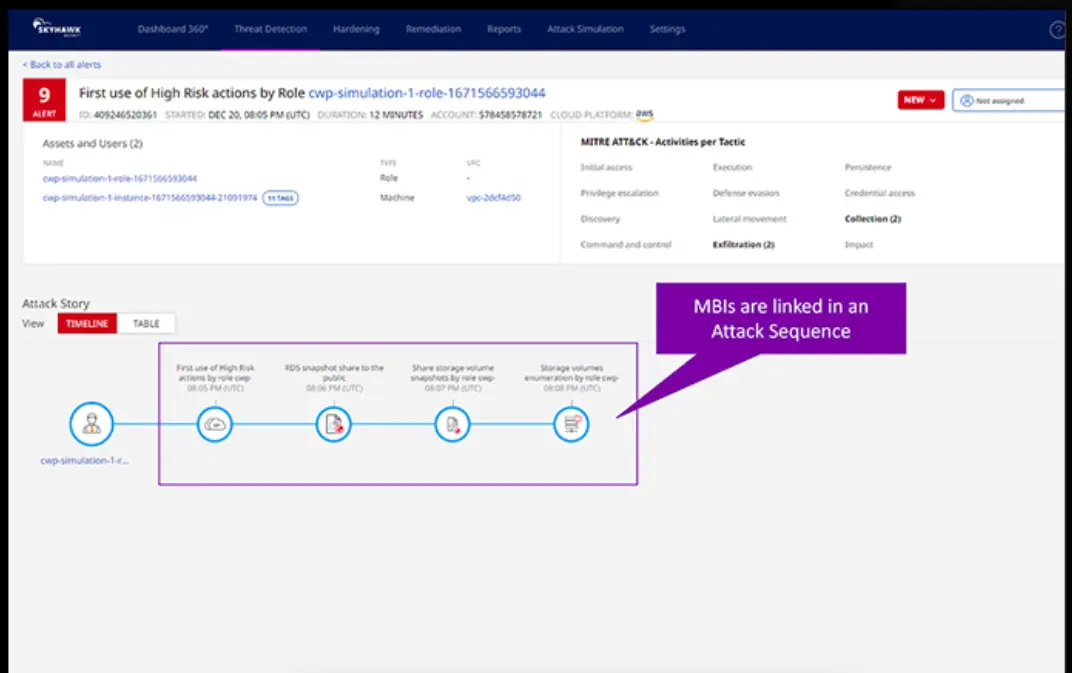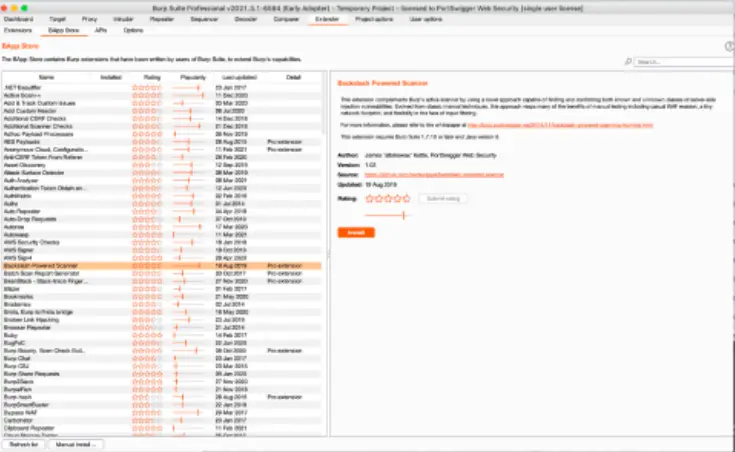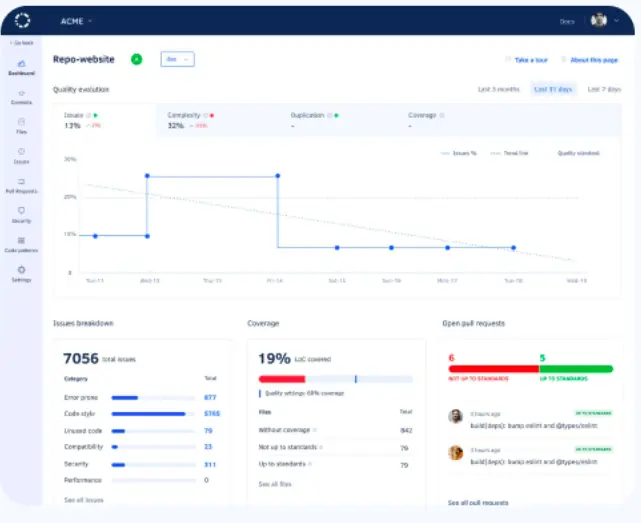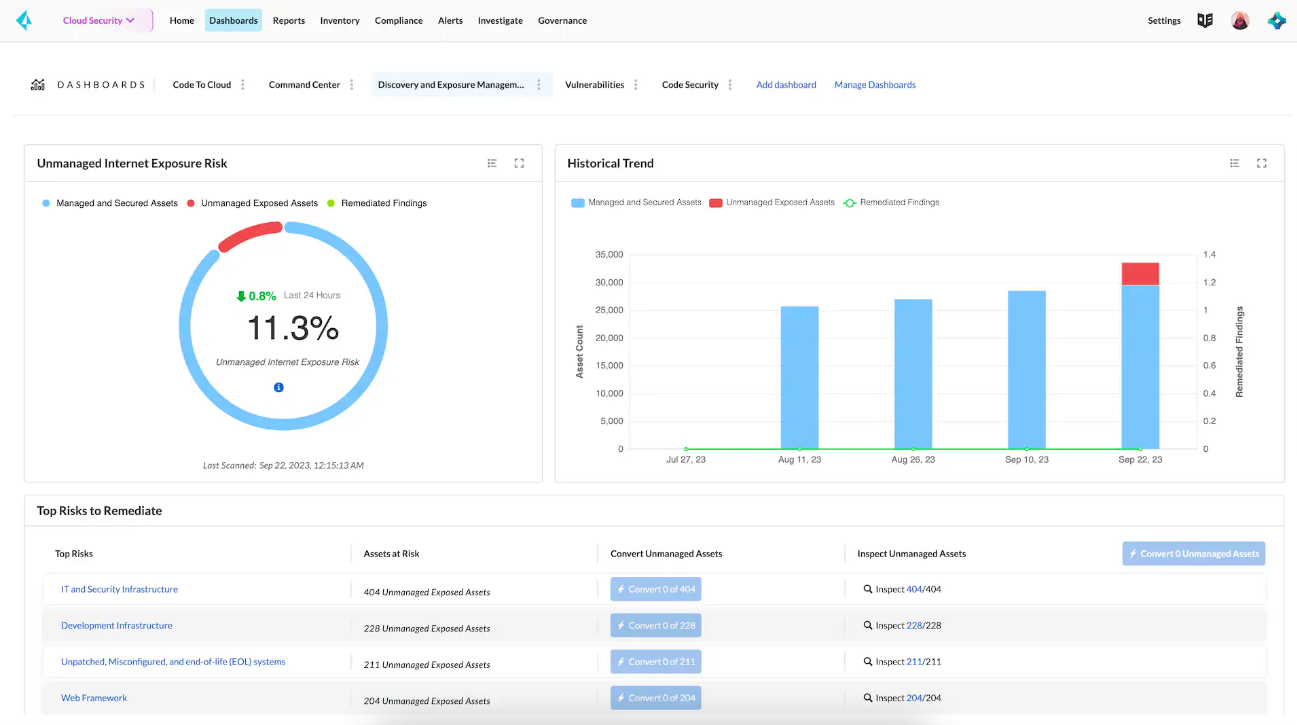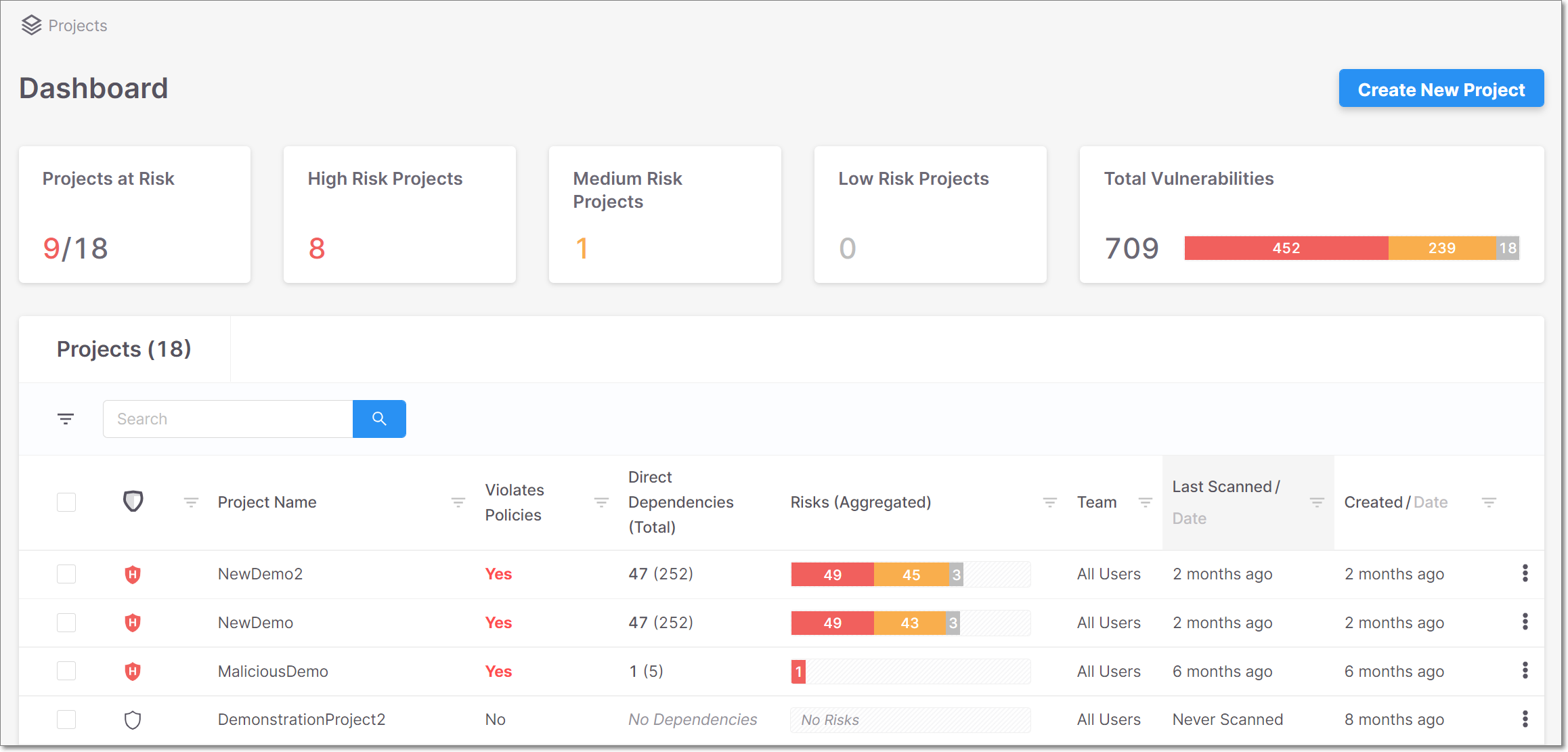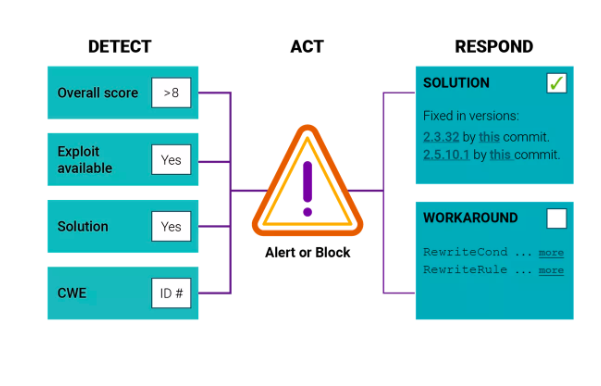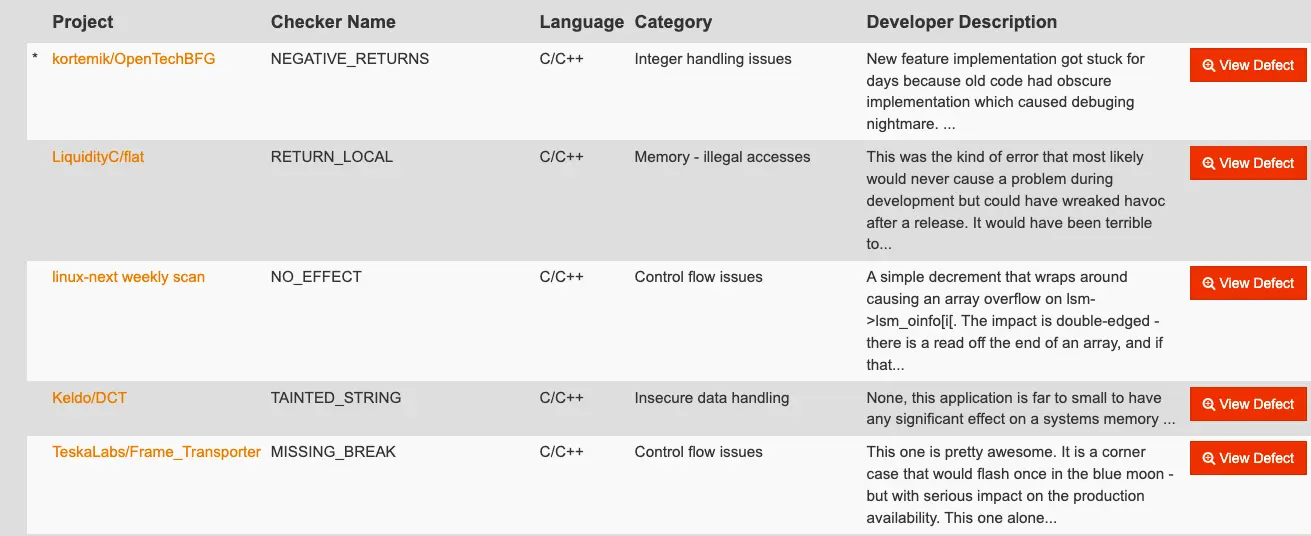Top 20 DevSecOps Tools to Secure Your Pipeline in 2025
March 6, 2025
Security is no longer an afterthought but an integral part of the entire software development process, much like the critical role of encryption in a banking app. Imagine a financial application handling thousands of transactions per minute; a single security flaw not caught in time can lead to massive data breaches and loss of customer trust.
DevSecOps, blending development, security, and operations, underlines the need to weave security measures into every phase of software development, from the first line of code to the last update rolled out. Think of a scenario where you’re building a complex, cloud-based service or deploying an application on VPS hosting. Without the right set of tools used in DevSecOps, each stage — coding, deployment (including virtual machines), and maintenance — could become a potential weak spot for cyber attacks.
In this guide, we’re going deep into the variety of DevSecOps tools. These tools work tirelessly behind the scenes, ensuring that every module, API keys, and every line of code in your software is not just functional but protected against cyber threats and other security flaws. We’ll explore the top 20 tools you should have in your arsenal in 2024, each one a key player in safeguarding your software development cycle against cybersecurity risks.
But let’s first take a look at what the DevSecOps tool is, why you need it, and how to pick the best one based on the feature set.
What are DevSecOps tools: a comprehensive overview
DevSecOps tools are essential in coding, especially when you’re dealing with complex projects. They’re not just about keeping your code safe; they’re also about making your whole development process more efficient.
Take automated security scanning tools, for example. They work in the background, checking your code for potential issues. This means you can catch bugs early, saving you a ton of time and headaches later on.
Then there’s container security. If you’re working with Docker or Kubernetes, having a tool to manage security in these environments is vital. You need DevSecOps security tools that know exactly what to look out for in these specific scenarios.
Infrastructure as Code (IaC) scanners are another key player. When you’re building your infrastructure through code, these tools make sure that everything you set up is secure and meets all necessary compliance standards.
Compliance monitoring tools are pretty handy, too. They keep an eye on your project to ensure it sticks to industry regulations, ticking all the right boxes.
Lastly, integrated DevSecOps platforms can be real time-savers due to versatile functional coverage and alerting tools. They combine various aspects of the development process, like integrating security into code and deploying it all in one place. This means less juggling between tools for you.
In short, DevSecOps tools are like the support crew in your development process, handling a lot of the technical and security details so you can focus more on the creative coding part.
Why you need DevOps security tools
Let’s talk about why having a DevOps security tool mix is non-negotiable again. Without proper security, you leave the software’s front door wide open for cyber intruders. The potential risks are no joke. Cyber threats can turn your masterpiece into a nightmare and cost you A LOT.
Don’t believe it?
Let’s crunch some numbers. Statistics scream the importance of DevOps security tools. Breaches are happening left, right, and center. They lead to losing data and the aftermath — damaged reputation, legal chaos, and a hit to your bottom line.
The global average cost per data breach is getting scarier and scarier every year ($4.45 million in 2023) with the highest losses attributed to the healthcare industry. However, less strictly regulated industries are still subject to data privacy regulations and need to stay compliant with the basic security requirements.
In a nutshell, it’s not a matter of if but when. DevOps security tools aren’t a luxury; they’re your lifeline. They provide the shield that keeps your software intact. So, let’s not gamble with your digital legacy. Embrace DevOps security tools, and let the statistics be a wake-up call.
Must-have features in DevSecOps tools
When you’re diving into the sea of DevSecOps tools and techniques, it’s crucial to know what floats and what sinks. Here’s a list of features to absolutely look for in the first place:
– Integration: The MVPs of DevSecOps tools play nice with your existing tech stack. Look for tools that easily integrate into your development pipeline, ensuring a smooth workflow without the headache of compatibility issues.
– Automatic web application security checks: Time is money, and in the coding universe, it’s also the key to staying ahead of the game. Top-notch DevSecOps tools automate security checks like a silent guardian. They catch vulnerabilities on the fly, saving you from late-night debugging sessions.
– Real-time threat intelligence: You need tools with radar and threat modeling. Opt for those armed with real-time threat intelligence, so you’re not just reacting to yesterday’s threats but staying one step ahead.
– User-friendly interface: Let’s keep it real — nobody has time for a tool that requires a PhD to operate. Your ideal DevSecOps security tools are user-friendly, with an interface that even your coffee-deprived coder at 3 a.m. can navigate without a hitch.
– Scalability: Your code is destined for greatness, so your tools better grow with it. Choose DevSecOps tools that scale effortlessly as your projects evolve, ensuring they’re not just for now but for the next big thing.
– Compliance: With so many regulations and standards, your tools should make compliance quick and painless. Look for those that understand and align with industry standards, saving you from regulatory headaches down the road.
Effective DevSecOps tools quietly fortify your code. Keep an eye on these features, and your toolkit will be the envy of every developer on the block.
Top 20 DevSecOps tools you can’t afford to miss
We’ve curated the ultimate lineup — the top 20 DevSecOps tools that are not a luxury but a necessity. From DevSecOps automation tools to threat management, these are the backbone of your code.
1. Check Point CloudGuard
Ideal for enterprises navigating the cloudscape, CloudGuard is your go-to among security tools for DevSecOps that don’t compromise on speed.
Main features:
- Compatibility with leading cloud providers
- Integration into CI CD pipeline
- Intuitive dashboard for real-time insights
‘Check Point CloudGuard is ideal for intelligent prevention, agile processes, and total security controls over cloud.’ — G2 Reviewer
2. Spectral
Spectral is the watchtower for identifying and rectifying vulnerabilities. With automated policy enforcement, it ensures your code meets security standards effortlessly.
Main features:
- Code scanning
- GitHub integration
- Customizable security policies
- Developer-friendly CLI (Command Line Input)
‘Spectral changed our security. We can find issues and fix them easily. A must-have for any operations teams serious about secure coding.’ — Gartner Reviewer
3. Jit.io
Jit.io brings simplicity to secrets management and is one of the free DevSecOps tools (or Freemium). With secure storage and dynamic access control, it ensures your application secrets are locked away from prying eyes.
Main features:
- API-driven architecture
- Support for various secret types
- Easy integration with Continuous Integration and Continuous Delivery pipelines
‘Jit.io improved our secrets management. It’s easy to use, and the API-driven approach fits into our CI/CD workflow.’ — Capterra Reviewer
4. Snyk
Snyk identifies and fixes security vulnerabilities in open-source dependencies. With continuous monitoring, it ensures your dependencies stay secure over time.
Main features:
- Support for multiple languages
- Deep integration with CI/CD tools
- Actionable insights to enable developers
‘Snyk protects our entire codebase. It is one of the security tools in DevOps that not only finds vulnerabilities but guides us on how to fix them effectively.’ — G2 Reviewer
5. GitGuardian
Ideal for teams guarding against secrets sprawl, GitGuardian is a must-have among DevSecOps tools for securing codebases without slowing development.
Main features:
- Real-time secrets detection across Git repositories
- Automated incident response workflows
- Seamless integration with GitLab and GitHub
‘GitGuardian turns secrets management into a proactive strength, keeping our pipelines leak-free.’ — DevSecOps Engineer, 2025 Review
6. Pynt
Main features:
- AI-powered contextual API vulnerability scans
- Integration into CI/CD for shift-left testing
- Detailed remediation guidance for developers
‘Pynt’s automation caught API flaws ZAP missed, saving us hours in production fixes.’ — G2 Reviewer, 2025
7. Checkmarx
The Checkmarx software exposure program takes a deep dive into your source code, identifying and eliminating security vulnerabilities. Its static application security testing tools (SAST) ensure that your codebase is protected against potential security threats.
Main features:
- Support for multiple languages
- Integration with popular CI/CD tools
- Centralized dashboard for comprehensive security management
‘Checkmarx elevated our security posture. Its thorough code analysis and actionable insights make it a cornerstone among our DevSecOps security tools.’ — G2 Reviewer
8. Aqua Security
Aqua Security monitors containerized environments, ensuring the security of your containers throughout their lifecycle. With its container security platform, it gives protection against container-specific threats.
Main features:
- Deep integration with major container orchestration platforms
- Runtime application self-protection
- Vulnerability scanning
‘Aqua Security leads us in securing containers. It also works well with our CI/CD pipeline. A must for containerized applications.’ — Gartner Reviewer
9. Lacework
A top pick for cloud-native security, Lacework shines among DevSecOps tools by delivering comprehensive protection without deployment headaches.
Main features:
- Automated cloud workload and container monitoring
- Behavioral anomaly detection with AI
- Unified visibility across multi-cloud environments
‘Lacework gives us cloud security that scales effortlessly—perfect for our Kubernetes shift.’ — Security Lead, 2025 Review
10. Sysdig
Sysdig is your observability lead in the world of containers and microservices. With real-time visibility and security, it ensures your containerized applications run smoothly and securely.
Main features:
- Container-native monitoring
- Anomaly detection
- Runtime security
‘Sysdig is our eyes and ears regarding container security. Its real-time monitoring and security features give us the confidence to run containerized applications at scale.’ — Capterra Reviewer
11. Veracode
Veracode is the duo of static and dynamic application security testing (SAST and DAST). It dives deep into your codebase, identifying vulnerabilities early in the development process and ensuring your applications are secure in production.
Main features:
- Support for multiple languages
- Integrations with popular IDEs and CI/CD tools
- Centralized platform for managing application security
‘Veracode stands out among other DevSecOps pipeline tools, catching vulnerabilities before they become headaches.’ — Gartner Reviewer
12. Qualys
Qualys is a cloud-based security solution that covers a spectrum of vulnerabilities, from web applications to network infrastructure. With its vulnerability scans management tools and continuous monitoring, Qualys provides a solid security blanket.
Main features:
- Cloud-native architecture
- Real-time threat intelligence
- Integrations with SIEM and ticketing systems
‘Qualys’s cloud-based approach and continuous monitoring give us the confidence that we’re always aware of potential issues.’ — G2 Reviewer
13. Skyhawk Security
Skyhawk Security specializes in threat detection and response, ensuring your digital realm is protected against evolving cyber threats. With its AI-driven capabilities, it provides real-time insights into potential security incidents.
Main features:
- AI-driven threat detection
- Real-time incident response
- Integration with security information and events management (SIEM) systems
‘Skyhawk Security protects well against cyber threats. Its AI-driven approach gives us real-time insights and allows us to respond swiftly to potential incidents.’ — Capterra Reviewer
14. Burp Suite
Burp Suite extensively covers web application security testing. From scanning for vulnerabilities to aiding in manual interactive application security testing, it protects all bases.
Main features:
- Dynamic scanning
- Manual security testing tools
- Community-contributed extensions
‘Burp Suite is one of the best choices for DevSecOps testing tools. It aligns with our testing approach and ensures we catch every potential vulnerability.’ — Gartner Reviewer
15. Codacy
Codacy guards your code quality, analyzing the codebase and providing insights into potential issues. With its automated tools for code reviews, it ensures your code maintains high standards.
Main features:
- Support for multiple languages,
- Integration with popular version control systems
- Intuitive dashboard for code analysis
‘Codacy automates reviews and saves us time. The actionable insights help us continuously improve the quality of our code.’ — G2 Reviewer
16. Prisma Cloud
Prisma Cloud is the sentinel for cloud-native security, providing top protection for your cloud workloads. With its multi-cloud support and container security capabilities, it ensures your cloud infrastructure remains secure and compliant.
Main features:
- Multi-cloud compatibility,
- Container security
- Integration with CI/CD pipelines
‘Prisma Cloud gives multi-cloud support and container security features, keeping us confident to accelerate our cloud-native development securely.’ — Capterra Reviewer
17. Checkmarx One
Built for enterprise-grade AppSec, Checkmarx One leads among DevSecOps tools by blending SAST, SCA, and API security into one fast platform.
Main features:
- AI-correlated vulnerability prioritization
- Seamless CI/CD pipeline integration
- Broad language and framework support
‘Checkmarx One’s unified approach cut our vuln triage time in half.’ — DevSecOps Manager, 2025 G2 Review
18. Blackduck
Blackduck is a good choice when it comes to open-source DevSecOps tools, scanning your codebase for vulnerabilities in third-party software components. With its continuous monitoring, it ensures your dependencies remain secure over time.
Main features:
- Support for multiple languages
- Integration with CI/CD pipelines
- Knowledge base of DevSecOps tools open-source components
‘Blackduck assists against open-source vulnerabilities. It provides continuous monitoring and a comprehensive database of components to help us stay ahead of potential threats.’ — Gartner Reviewer
19. Coverity
Coverity is the code quality gatekeeper, ensuring your software is free from defects and vulnerabilities. With its static code analysis tool, it identifies issues early in the development process.
Main features:
- Support for various languages
- Integration with popular IDEs
- Detailed code analysis reports
‘Coverity is our code perfection tool. We really enjoy deep static analysis tool capabilities.’ — G2 Reviewer
20. GitLab CI/CD
A powerhouse for end-to-end DevSecOps, GitLab CI/CD excels among tools by embedding security into every pipeline stage without complexity.
Main features:
- Native SAST, DAST, and dependency scanning
- Automated CI/CD workflows with security gates
- Intuitive dashboard for pipeline insights
‘GitLab’s all-in-one security and CI/CD streamlined our releases like never before.’ — Tech Lead, 2025 Review
Conclusion: Protecting success with DevSecOps tools
The right DevSecOps tools ensure that your software meets high-quality standards and stands resilient against the relentless tide of cyber threat models. As we wrap up our exploration of the top DevSecOps tools, it’s evident that the key lies in choosing tools that align with your unique development needs and security aspirations.
These DevSecOps tools aren’t just about identifying vulnerabilities; they’re your partners in creating a robust, efficient, and secure software development lifecycle. From the cloud guardianship of Check Point CloudGuard to the secure code perfection pursuit of Codacy, each tool brings its own strengths to the table.
All of the best DevSecOps tools integrate well with CI/CD, encounter a good community, and promise scalability. Though they do differ in some aspects. Let’s break down their prowess with a quick DevSecOps tools comparison table.
DevSecOps tools list comparison
DevSecOps Tools 2025 | Deployment Environment | Static Analysis (SAST) | Dynamic Analysis (DAST) | Container Security | Software Composition Analysis (SCA) | Infrastructure as Code (IaC) Security | Pricing Model |
Check Point CloudGuard | Multi-Cloud | yes | no | yes | no | no | Subscription |
Spectral | Multi-Language | yes | no | no | no | no | Subscription |
Jit.io | Cloud | no | no | no | no | no | Freemium |
Snyk | Multi-Language | yes | no | yes | yes | yes | Subscription |
GitGuardian | Multi-Language | yes | no | no | no | yes | Subscription |
Pynt | Web Applications | no | yes | no | no | no | Subscription |
Checkmarx | Multi-Language | yes | no | no | no | no | Subscription |
Aqua Security | Containerized Environments | no | no | yes | no | no | Subscription |
Lacework | Cloud-Native | no | no | yes | no | yes | Subscription |
Sysdig | Containers, Microservices | no | no | yes | no | no | Subscription |
Veracode | Multi-Language | yes | yes | no | no | no | Subscription |
Qualys | Cloud | no | no | no | no | no | Subscription |
Skyhawk Security | Cloud, On-Premises | no | no | no | no | yes | Subscription |
Burp Suite | Web Applications | no | yes | no | no | no | Subscription |
Codacy | Multi-Language | yes | no | no | no | no | Subscription |
Prisma Cloud | Multi-cloud | yes | no | yes | no | yes | Subscription |
Checkmarx One | Multi-Language | yes | yes | no | yes | yes | Subscription |
Blackduck | Multi-Language | no | no | no | yes | no | Subscription |
Coverity | Multi-Language | yes | no | no | no | no | Subscription |
GitLab CI/CD | Multi-Language | yes | yes | yes | yes | yes | Freemium |
As evident, the DevOps as a Service pricing and strategy will differ among mobile app platforms, not to mention the specific stack linked with each. Ensure that your DevOps team possesses hands-on expertise in the precise mobile development approach you choose for your product.
Protecting Success with DevSecOps Tools
The right DevSecOps tools ensure that your software not only meets high-quality standards but also stands resilient against the relentless tide of cyber threats. As we wrap up our exploration of the top DevSecOps tools, it’s clear that success lies in choosing solutions aligned with your specific development needs and long-term security objectives.
These tools aren’t just for identifying vulnerabilities — they’re your strategic partners in building secure, scalable, and compliant applications from the ground up. Whether you’re hardening containerized environments with Aqua Security, managing secrets with GitGuardian, or embedding security directly into your CI/CD with GitLab, each tool plays a pivotal role in strengthening your development lifecycle.
So, where should you go from here?
Start small, scale smart. If you’re new to DevSecOps, begin by integrating two foundational tools into your workflow:
-
A code vulnerability scanner like Snyk or Checkmarx to catch issues early.
-
A secrets management solution such as Jit.io or GitGuardian to avoid credential leaks.
Next, audit your CI/CD pipeline for gaps — are you covering runtime security, infrastructure as code scanning, compliance monitoring? Use our curated list to plug those vulnerabilities with targeted tools.
And don’t forget: choose platforms that grow with you. Look for features like scalability, real-time threat intelligence, and seamless integration with your existing tech stack to ensure long-term value.
In today’s threat landscape, DevSecOps isn’t optional — it’s essential. By choosing the right tools and taking deliberate next steps, you’re not just shipping secure code — you’re building trust, resilience, and a future-ready development culture.
Securing your software future with Timspark
At Timspark, we prioritize protecting applications and software supply chain with DevSecOps security tools. With a proven track record, cutting-edge solutions, and an adaptive approach, we’re your partner in the confusing and dynamic cybersecurity landscape.
Why Timspark?
– Proven success: Check out our top-tier DevOps tools, security, and other solutions for various software types.
– Modern solutions: Borrow our commitment to investing in the latest tools and strategies. Let us advise on how to select DevSecOps tools for secure software delivery.
– Adaptive approach: We tailor security tools for DevOps to your unique needs, whether in cloud-native development, traditional applications, or hybrid environments.
Integrate security into your software future with this list of DevSecOps tools and Timspark. Explore our DevSecOps services for an innovative approach where software security meets excellence. Don’t wait — fortify your software today!


